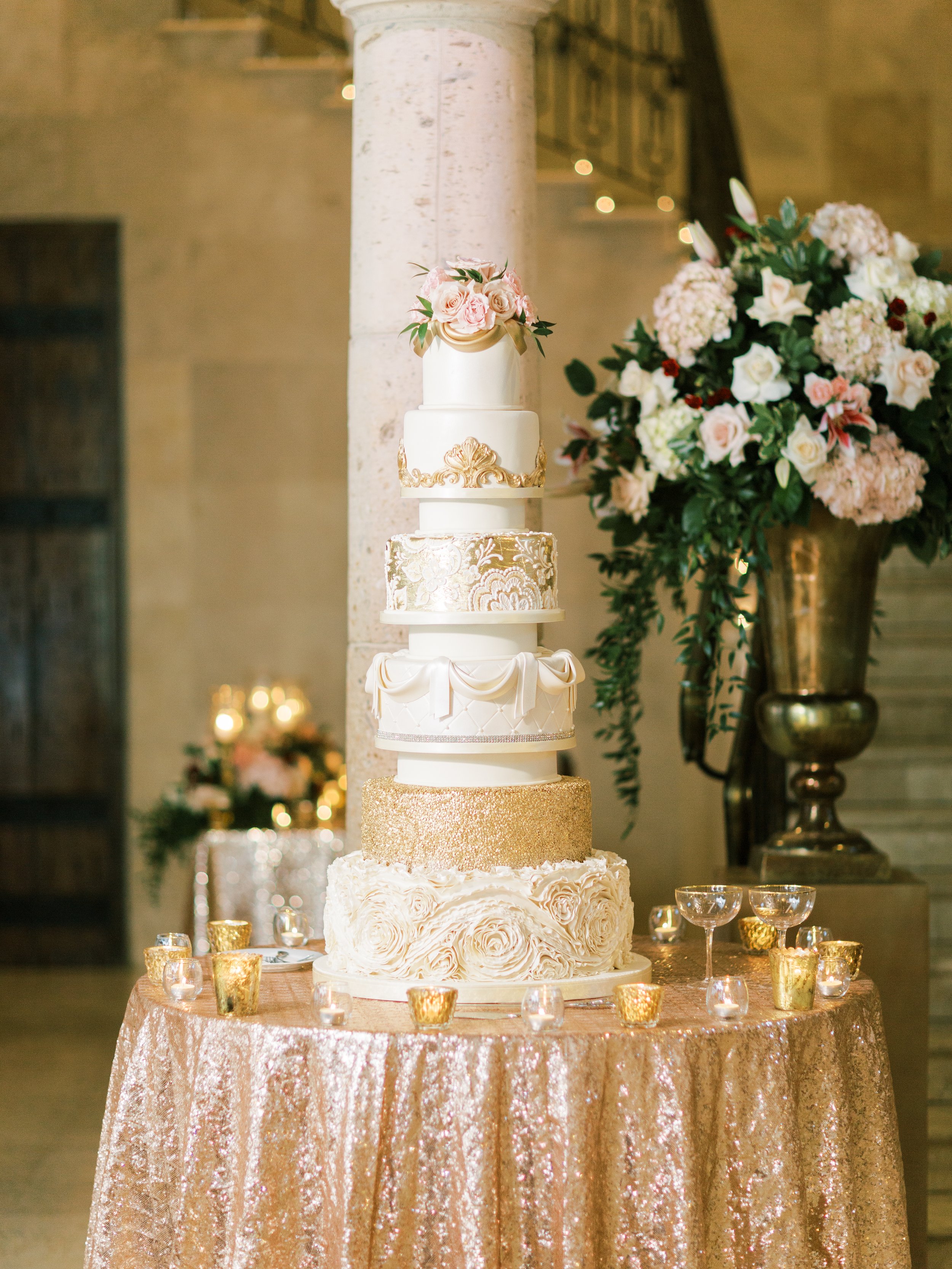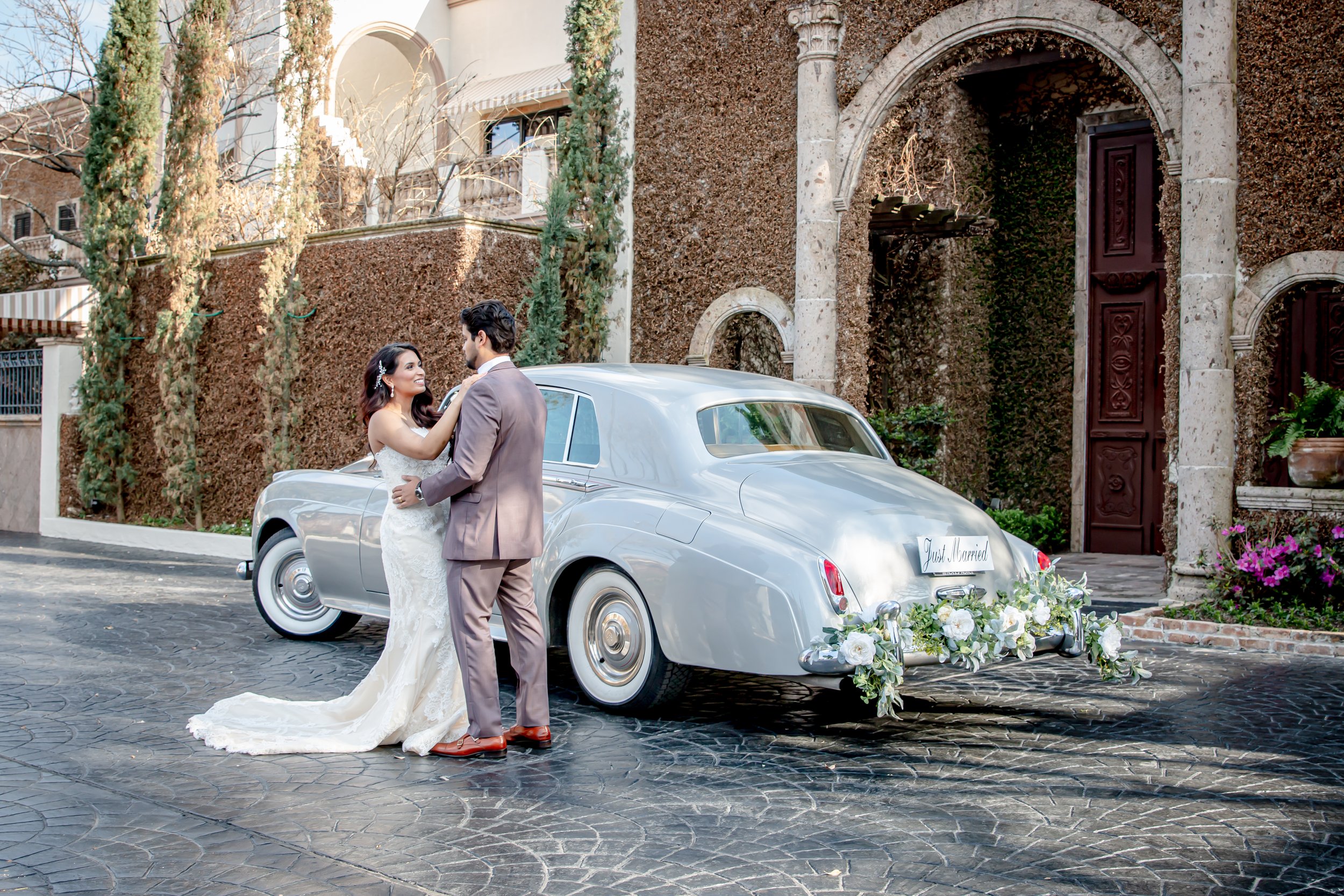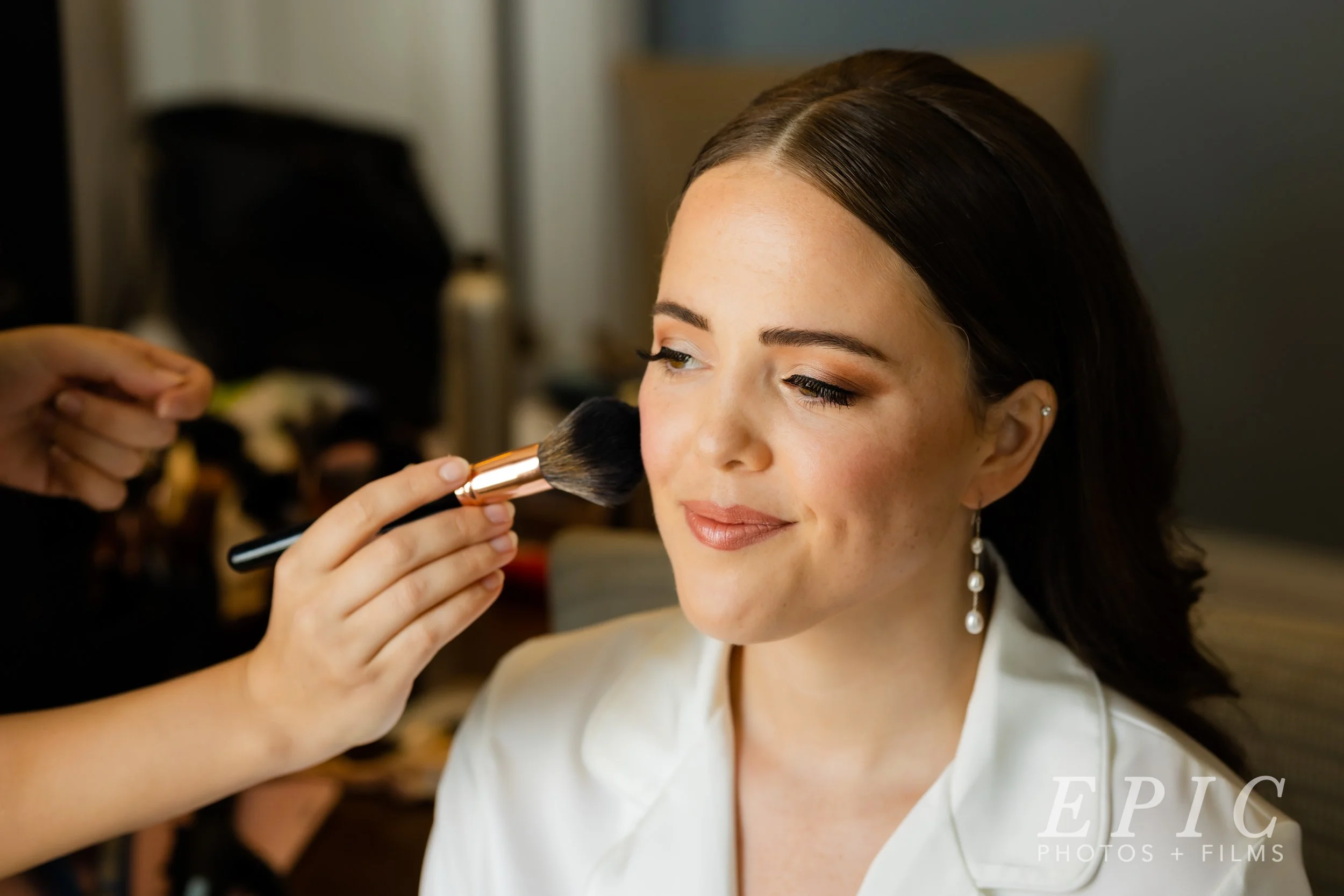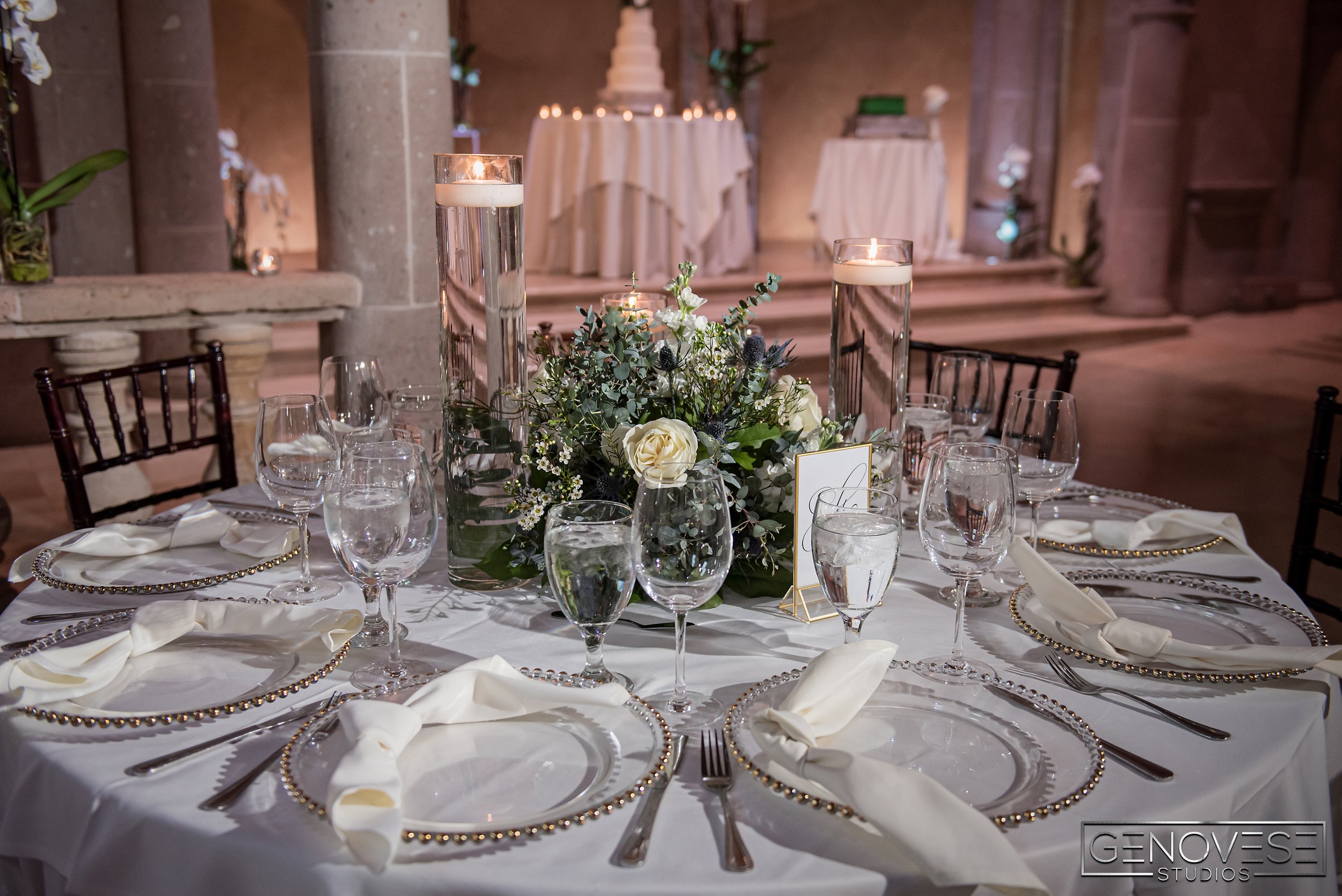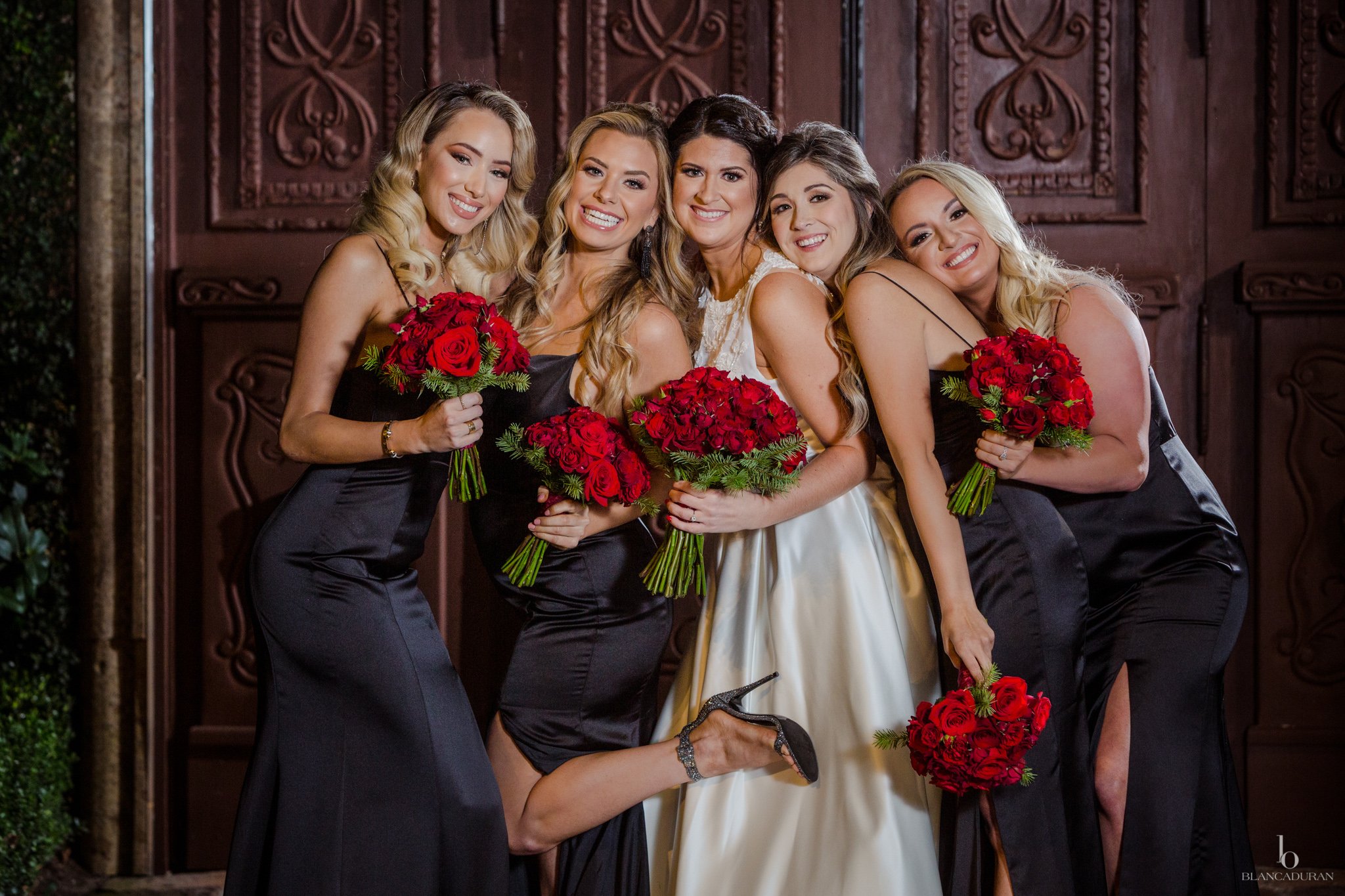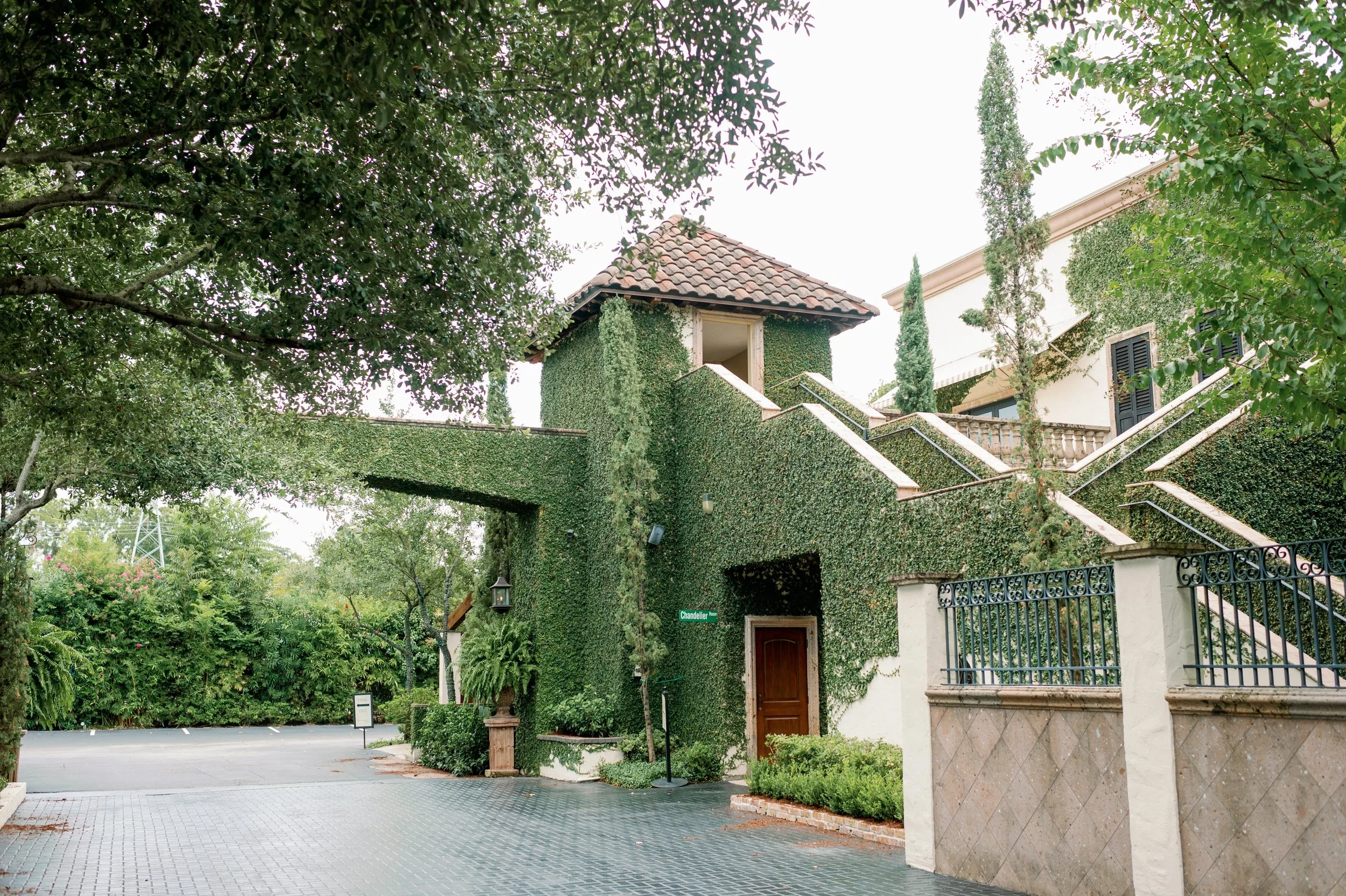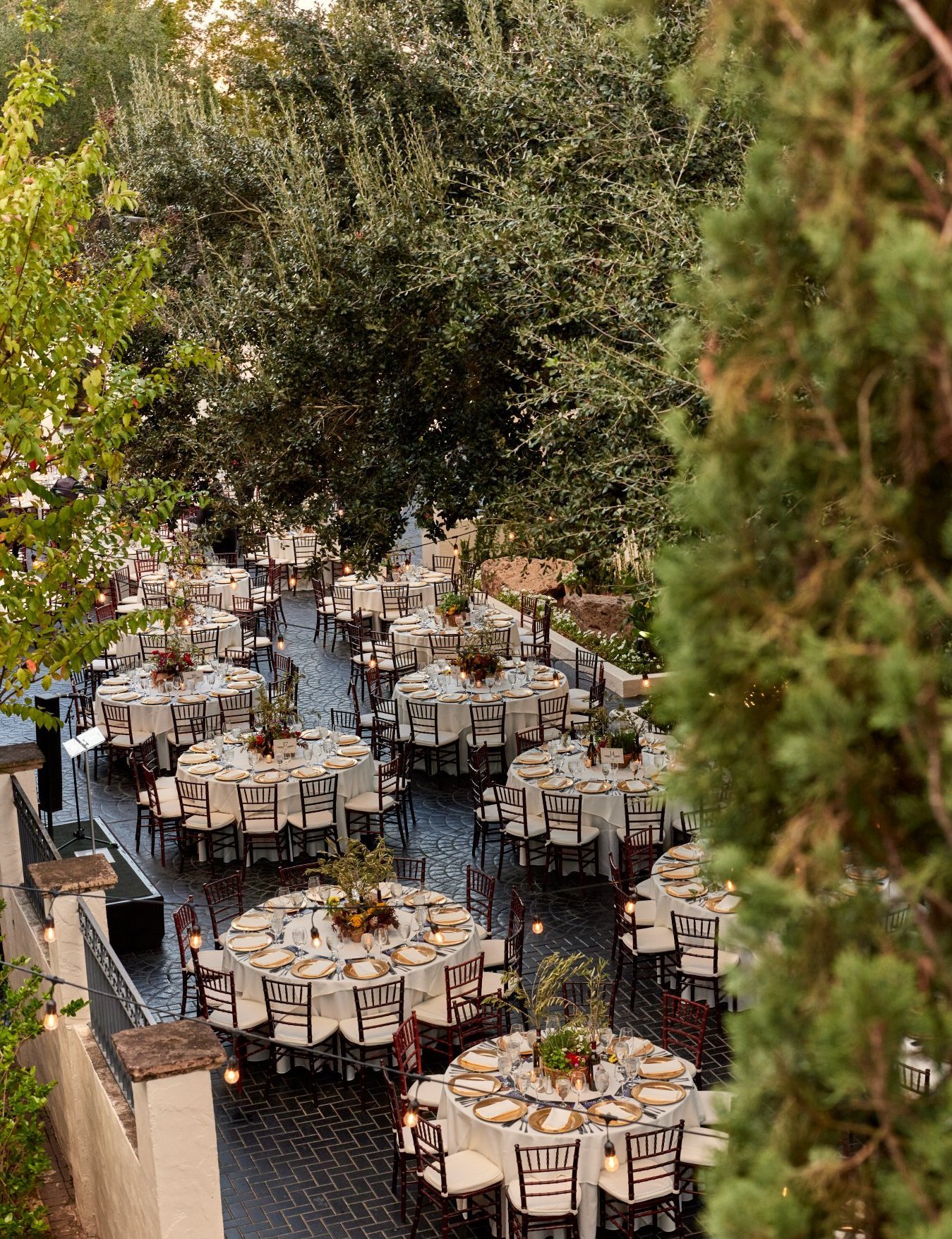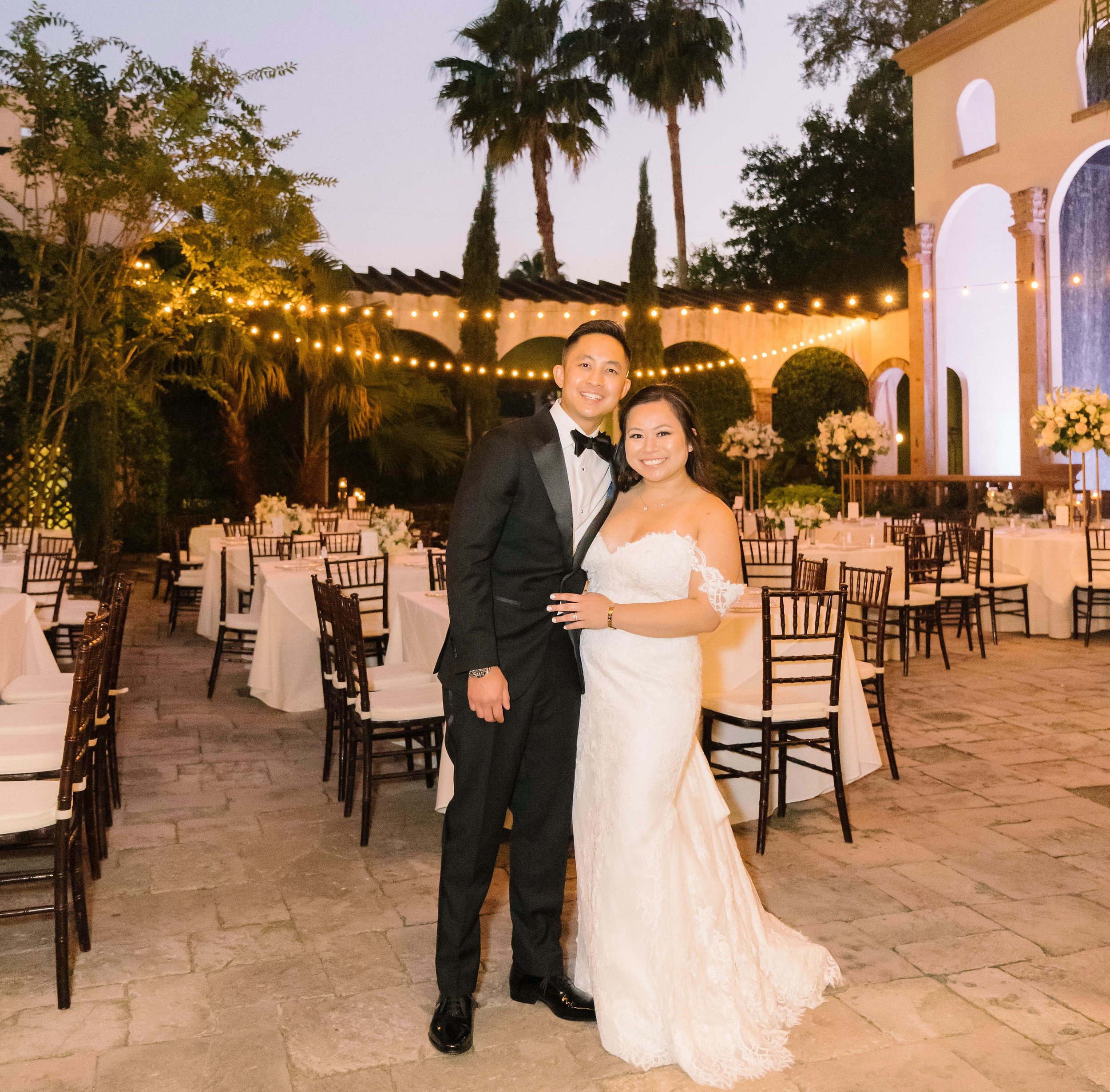Whether you live in the Houston area, or you're planning a destination wedding in the Bayou City, you'll want to make sure your guests enjoy their time here.
With world-class museums, beautiful parks, and great shopping, there are plenty of wonderful things for your wedding guests to see and do during their visit.
This guide provides an overview of can't-miss Houston-area attractions and resources to help you plan activities for your guests.
What is the Houston Area?
Houston is the largest city in Texas and the fourth largest city in the United States. But when people refer to the “Houston area” or “Greater Houston,” they’re talking about much more than just the City of Houston itself.
Greater Houston encompasses Harris County, where Houston is located, plus the surrounding counties of Fort Bend, Montgomery, Brazoria, Galveston, Liberty, Waller, Chambers, and Austin. In total, the area covers nearly 10,000 square miles.
Within Greater Houston, you’ll find:
-Metropolitan areas like The Woodlands, Sugar Land, Baytown, and League City
-Historic small towns like Conroe, Tomball, Liberty, and Katy
-Islands and coastal communities like Galveston Island and Clear Lake
-Master-planned communities like Kingwood, Clear Lake, The Woodlands, and Cinco Ranch
-Major suburban cities like Pasadena, Pearland, Missouri City, and Spring
Greater Houston has a diverse population of more than 7 million people. It blends urban city centers with charming rural areas, coastal communities, forests, prairies, bayous, and more.
Visitors will experience true southern hospitality and culture throughout the expansive Greater Houston region. The area offers attractions, dining, arts, and entertainment to delight visitors of all ages and interests.
Downtown Houston
For many visitors, downtown Houston is their first impression of the city. With glistening skyscrapers, massive sports venues, theaters, and more, downtown has a lot to offer your guests. Here are some top sites:
-Discovery Green - This 12-acre urban park is located right in the heart of downtown. It features beautiful lawns, scenic walking paths, lively restaurants, art installations, and more. During their stay, encourage your guests to spend an afternoon relaxing in the park.
-Houston Tunnel System - To escape the heat, suggest your out-of-town guests explore the underground Houston Tunnel System. Spanning six miles, it is one of the most extensive tunnel systems in the U.S. The tunnels connect many downtown buildings and parking garages and house a variety of restaurants and shops.
-Hobby Center for the Performing Arts - For theater and music, direct your guests to this downtown performing arts complex. Musicals, plays, operas, and more are presented in multiple stunning theaters.
Museum District
Houston is renowned for its Museum District just south of downtown. With 19 museums, galleries, cultural centers, and more in the area, it offers incredible arts and culture for your wedding guests to experience. Here are some of the top museums:
-Museum of Fine Arts, Houston - This is one of the largest art museums in America with more than 65,000 works. Their collections span from antiquities to modern and contemporary pieces.
-Houston Museum of Natural Science - One of the most popular museums in Houston, it covers everything from towering dinosaurs to dazzling gems and minerals. Don't miss the fascinating Cockrell Butterfly Center.
-The Health Museum - With interactive exhibits on healthcare and the human body, this museum entertains and educates visitors of all ages.
-Children's Museum of Houston - Treat the kids in your wedding party to hands-on fun at this museum tailored for children and families.
-Houston Print Museum - This specialized museum specialized museum celebrates the art of printmaking. Guests can view rotating exhibits of etchings, lithographs, screenprints, and more by acclaimed artists. The museum also hosts printmaking workshops and demonstrations.
-Houston Zoo - Technically just outside the Museum District, the Houston Zoo is one of the top zoological parks in the U.S. It's home to over 6,000 exotic animals.
Consider getting your guests discounted combo tickets to multiple museums through Houston CityPASS.
Hermann Park
Located right within the Museum District, the 445-acre Hermann Park is a beautiful green space your out-of-town friends and family will love. Some highlights include:
-McGovern Centennial Gardens - Stroll through these stunning formal gardens with roses, azaleas, seasonal blooms, and tranquil fountains.
-Houston Zoo and Houston Museum of Natural Science - Both located right inside the park.
-Japanese Garden - This serene garden features graceful waterfalls, koi ponds, and peaceful pathways.
-Lake Plaza - Rent a pedal boat and cruise across the scenic lake.
-Miller Outdoor Theatre - On select nights, guests can spread out a blanket for free music and theater performances at this open-air theater.
Memorial Park
For nature and outdoor activities, suggest your guests head just west of downtown to the 1,500-acre Memorial Park. Here they can bike, golf, jog trail run, relax by the bayou, and more. Some highlights include:
-About 60 miles of hiking and biking trails - Explore the park on two wheels or by foot on these scenic, woodsy trails.
-Memorial Park Golf Course - One of the top courses in Houston with affordable rates. The lush greens back right up to Buffalo Bayou.
-The Arboretum - Home to small gardens, fountains, and tropical plants within the park.
-Bayou Bend Collection and Gardens - Tour this historic house museum filled with American decorative arts and paintings. Then stroll through the expansive gardens overlooking Buffalo Bayou.
The Houston Heights
Located just northwest of downtown, The Heights is one of Houston's oldest neighborhoods, now revitalized with boutiques, restaurants, and nightlife.
-Take a walk down 19th Street to browse the indie shops, bakeries, vintage stores, and more. Popular during the monthly First Friday events.
-Stop for award-winning pies and local craft beer at Heights Bier Garten on 14th Street. The dog-friendly patio has fun vibes.
-Catch a show at The Heights Theater, a 1920s movie palace restored into a live music and events venue.
Exploring Northern Houston Communities
When planning a wedding in the Houston area, you'll find a wealth of attractions and activities for your guests to enjoy, especially in the communities to the north of the city. From the picturesque landscapes of The Woodlands to the historic charm of Conroe, the family-friendly atmosphere of Cypress, and the quaint appeal of Tomball, there's something for everyone to experience.
The Woodlands: Nature and Culture Merge
The Woodlands, Texas is a master-planned community known for its blend of natural beauty and cultural amenities. Whether your wedding guests are nature enthusiasts, art lovers, or shopping aficionados, they will find plenty to enjoy here. The Woodlands Waterway, a scenic canal system, is a central feature, lined with shops, restaurants, and entertainment options. You can take a leisurely walk along its picturesque pathways or even go for a scenic boat ride.
Nature lovers can explore the George Mitchell Nature Preserve, where miles of hiking and biking trails wind through lush forests and alongside serene lakes. The Cynthia Woods Mitchell Pavilion is a premier outdoor concert venue that hosts world-class performances year-round.
Conroe: Historic Elegance
Conroe, located just north of The Woodlands, is a historic city with a touch of Southern charm. For history buffs, a visit to the Heritage Museum of Montgomery County offers insight into the area's past. Stroll through downtown Conroe to admire its well-preserved historic architecture and quaint shops.
Lake Conroe, a 21,000-acre lake, offers opportunities for fishing, boating, and water sports. If your guests enjoy golfing, they can tee off at the many golf courses in the area. And for those looking to unwind, there are wineries and breweries where you can savor locally crafted beverages.
Cypress: Family Fun and Green Spaces
Cypress, TX is a family-friendly community with an abundance of parks and recreational activities. Bridgeland's Lakeland Village Park is a popular spot for picnics, birdwatching, and kayaking. Nearby, the Berry Center hosts various events, including sports competitions and concerts.
Foodies in your group will appreciate the diverse dining options in Cypress, from barbecue joints to international cuisine. For some retail therapy, the Houston Premium Outlets offer brand-name shopping at discounted prices.
Tomball: Small-Town Charm
Tomball, TX, known as the "Hometown with a Heart," offers a delightful blend of small-town charm and modern amenities. Its historic downtown district features brick-lined streets, antique shops, and cozy cafes. Stroll through The Depot Plaza, home to the Tomball Museum Center, to discover the city's rich history.
Tomball hosts numerous events and festivals throughout the year, such as the Tomball German Heritage Festival, showcasing the city's German heritage with live music, food, and craft vendors. For nature enthusiasts, Burroughs Park provides walking trails, playgrounds, and picnic areas in a serene natural setting.
Shopping Destinations
When your guests need a break from sightseeing, Houston has no shortage of amazing shopping. Here are some top destinations:
-Uptown Houston - Trendy area with upscale shopping at the Galleria mall, plus boutiques, restaurants, bars, and more.
-Highland Village - Near River Oaks, this open-air shopping village features luxury retailers and fabulous dining.
-Rice Village - Located near Rice University with cute boutiques, cafes, restaurants, and small green spaces.
Old Town Spring - Charming town outside Houston with Victorian-style architecture, boutiques, eateries, and charm.
-Katy Mills Mall - For serious shoppers, one of the largest outlet malls in Texas with more than 200 stores.
Great Day Trips from Houston
If your visiting family and friends have extra time and want to venture farther afield, suggest some of these easy and rewarding day trips:
-NASA Space Center Houston - Only a 30-minute drive from Houston, your guests can tour NASA's famous Mission Control and see rockets up close.
-Galveston Island - Hop on the ferry for a day of beachcombing, historic homes, coastal parks, and fresh seafood.
-Bluebonnet Trails - In March and April, your guests can drive just one to two hours from Houston and enjoy spectacular bluebonnet flowers blanketing the landscapes.
-Washington on the Brazos State Historic Site - Where Texas declared independence in 1836. Tour the historic buildings and grounds along the Brazos River.
-Round Top and Fayetteville - Charming small towns with cafes, live music, and huge antiques/vintage markets. Popular day trip for vintage lovers.
Dining in Houston
Houston is a true foodie destination. Treat your out-of-town visitors to some of the city's world-class cuisine. Here is a sampling of top Houston restaurants:
-Hugo's - Trendsetting Mexican spot with colorful, inspired regional dishes and excellent margaritas.
-Ouisie's Table - Classic Southern fare served in a charming Victorian house. Known for fried chicken and hummingbird cake.
-Killen's Barbecue - Highly acclaimed barbecue spot with locations in Pearland and The Woodlands. Pitmaster Ronnie Killen smokes up heavenly brisket, ribs, sausage, and more. The restaurants offer counter service in a laidback setting with an array of meat, sides, and desserts that will impress any barbecue aficionado.
-State of Grace - Elevated Southern cuisine in a sleek setting. Try the chicken fried steak or crawfish pie.
-Helen Greek Food and Wine - Vibrant, modern Greek restaurant and wine bar in Rice Village. Share grilled octopus, lamb, spreads, and more.
-Pondicheri - Unique fusion of Indian flavors with Houston influences. Samosas with Texas peach chutney, bison and masala burgers, and more.
-Katz's Deli - This popular New York-style deli has locations in Montrose and The Woodlands. Katz's serves up massive sandwiches piled sky-high with all the fixings, like pastrami, corned beef, brisket, and more. Their matzo ball soup and deli classics like knishes and blintzes also hit the spot.
Where to Stay in Houston
Houston has wonderful accommodation options ranging from refined hotels to cozy bed and breakfasts. When booking lodging for your wedding guests, look for hotels that are:
-Centrally located to key attractions, shopping, and your wedding venue.
-Offer convenient transportation like shuttles, metro access, or town cars. This helps your guests easily explore Houston without a rental car.
-Provide on-site amenities like outdoor pools, fitness centers, restaurants, bars, and lounges. This gives your guests things to enjoy during hotel downtime.
-Fit a range of budgets from luxury suites to affordable chains. Be sure to reserve a room block for your wedding.
Great Houston hotels to consider include Hotel ZaZa, JW Marriott, Royal Sonesta, Hotel Granduca, Lancaster Hotel, Hotel Derek, and the boutique hotel La Colombe d’Or. For charming bed and breakfasts, look at Sara’s Bed & Breakfast Inn and La Maison in Midtown.
Houston Transportation
Help your wedding guests get around this sprawling city with a few key transportation tips:
-Rental Cars - Convenient for those arriving at Houston airports. Advise reserving well in advance.
-METRORail - Efficient light rail with stops at many key points in Houston including downtown, the museum district, The Texas Medical Center, NRG Park, and more.
-METRO Bus System - Large network of buses throughout Houston. Have your hotel concierge assist guests with routes.
-Taxis/Rideshares - Ample taxis and Uber/Lyfts available, especially handy in the downtown area.
-BCycle - Houston has over 100 stations where guests can rent bikes on demand using an app. It's a fun way to explore spots like Buffalo Bayou Park.
With amazing museums, parks, and cuisine, Houston and the surrounding area have so much to offer your visiting wedding guests.
Hopefully, this guide provides valuable tips and inspiration as you plan activities, dining, and accommodation to delight your guests.
The Bell Tower on 34th is an elegant wedding venue with a historic feel and Old-World charm. Contact us to learn more about our Houston venue.

